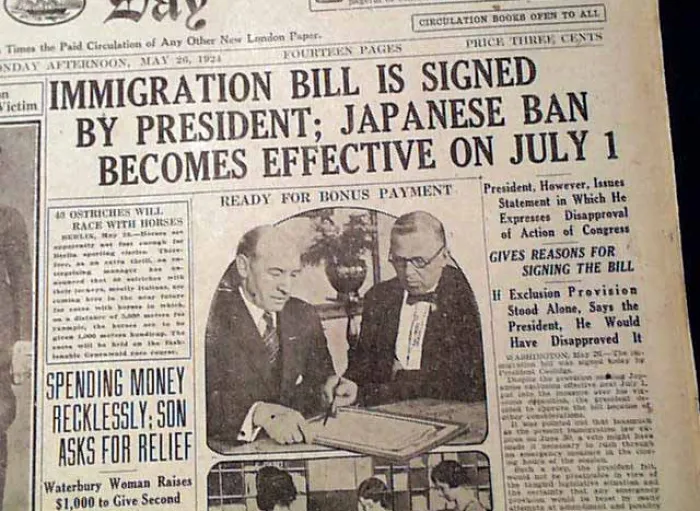
The National Origins Act (Johnson – Reed Act) and the Establishment of US Border Patrol
The National Origins Act lowered the number of allowable immigrants, making the quota system even more restrictive. In a related move, Congress also established the US Border Patrol to limit illegal crossings on the borders with Mexico and Canada.
The National Origins Act used data about US immigrant populations to set limits on the number of new people allowed to immigrate from countries beyond the Americas. For each country, new immigration was limited to 2% of the US population from that country as recorded in 1890. Immigration from Mexico and Central and South America remained uncapped due to the importance, in particular, of Mexican immigrants to the farming and mining industries in the Southwest.
The new quotas reflected, respectively, an 80% reduction from the pre-World War I immigration average and a change from the Emergency Quota Act of 1921’s standard of admitting 3% of the 1910 populations. The law affected Eastern and Southern Europeans most severely. Proponents of the act argued that curating the country’s ethnic makeup through this law would help form and retain a specific American identity. The quota system remained the primary determination of admissibility to the United States until 1965.
With the new quota system came a change to the immigration process itself, including the repurposing of Ellis Island. It no longer served as the gateway for immigrants seeking a new life; instead, it became a detention center for some immigrants who had administrative or other problems upon their arrival and for noncitizens awaiting deportation.
Because of the tight limits on immigration and the smuggling of alcohol that resulted from Prohibition, which began in 1920, Congress also passed the Labor Appropriation Act that established the US Border Patrol. For several decades, the southern border had been a route for Chinese laborers to enter the country in defiance of the Chinese Exclusion Act. Efforts to stem the flow of these illegal immigrants by patrolling the border were sporadic and lacked coordination. The ratification of the 18th amendment in 1919 prohibited the importation, manufacture, and sale of alcoholic beverages, and this, coupled with the 1921 and 1924 immigration quotas, generated significantly more traffic across the border. The increased traffic finally spurred Congress to establish a more formal border patrol operating with federal authority.

